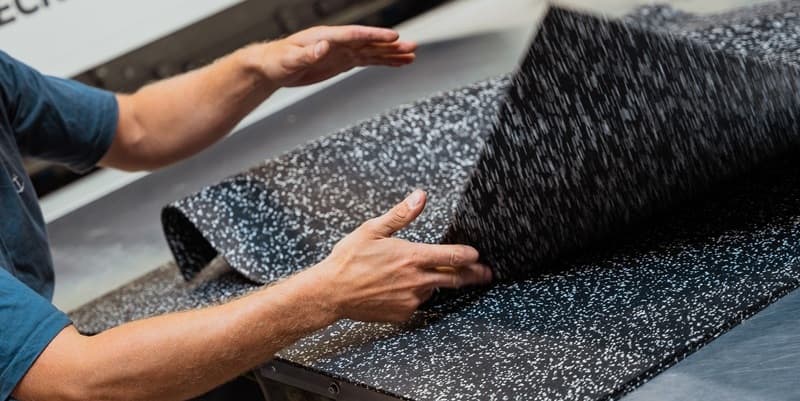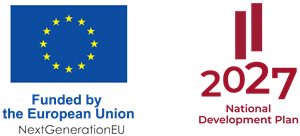RUBRIG rubber flooring travelling to 25 countries around the world

Attēls: Rubrig
Company RUBRIG specialises in the manufacturing of rubber safety flooring offering high-quality rubber solutions with anti-shock properties intended for use in places with increased risk of injury. The company offers three main types of products: flooring for gyms and free weight rooms, anti-ricochet tiles for shooting ranges and military training facilities, and safety rubber tiles for children's playgrounds. Products at the company’s factory in Ādaži are manufactured based on the latest studies in material technology ensuring not only safety, but also sustainability and durability in various conditions both indoors and outdoors.

Founded in 2015, just a year later RUBRIG opened one of the most advanced rubber tile factories in Europe. By 2017 the company was exporting its products to more than 15 countries and today RUBRIG is already present in 25 markets, including the United Kingdom, the Nordic countries and Israel. Approximately 92% of the company’s products are exported, and the brand is known throughout Europe for its high quality and reliability. Having reached an annual turnover of EUR 3 million, the company is planning to double its production capacity soon.

To further improve the precision and efficiency of its production, the RUBRIG factory installed two collaborative robots with gripper systems and optical sensors in 2024. These automate one of the most complex phases of production – the smoothing of the rubber mass in the moulding form. Previously this was done by hand and the results thus depended on the experience and precision of the worker leading to a higher risk of fluctuating quality. Now, thanks to the automatizations, the company can ensure that every square metre of product is structurally and visually identical with significantly less room for error or losses.

RUBRIG co-financed the procurement of these machines through the support programme for digitalisation of business processes, and CEO Dainis Bonda acknowledges that this first experience with state support was a positive one: “We heard about the programme at a workshop, and the whole process went smoothly with the contract being signed within two months. This was a very successful collaboration, indeed.”

When applying for the next support round for the automatization of product preparation and packaging which is planned to be implemented by the end of this year, the company had to wait longer: “This time around the process to conclude the contract was longer and it was completed in early) spring this year. Seeing as the machine is of strategic importance and competition in the market is stiff, time is of the essence for us and this is a painful issue. At the same time, however, we appreciate the importance of co-financing, and we are glad to hear of the planned improvements to streamline the application examination process in future,” Mr. Bonda highlights.___
Information material prepared with the support of the Recovery Fund. The author is solely responsible for the content of this publication. The views expressed herein do not reflect the official position of the European Union or the European Commission.
